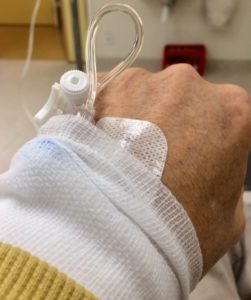What are Opiates?
 Opioids are a collection of potent narcotics derived from the poppy plant, and that consists of opium or a natural or synthetic derivative of opium. Normally, opioids are used to induce sleep or relieve pain since they work as a depressant in the central nervous system.
Opioids are a collection of potent narcotics derived from the poppy plant, and that consists of opium or a natural or synthetic derivative of opium. Normally, opioids are used to induce sleep or relieve pain since they work as a depressant in the central nervous system.
Opiates work in the body by connecting to opioid receptors, which are located in the brain, spinal cord, and gastrointestinal tract. In doing so, opiates are able to prevent the release of pain messages and can change the way a person encounters pain.
Opioids also stimulate the neurotransmitters in the brain’s reward system, the results are euphoric like effects. All medicines that are opiate-based must be prescribed by a physician. Usually, these prescriptions are provided with purposes of controlling pain and alleviating the effects of pain.
Due to the fact that the pain-relieving effects of opioids are short-lived and a strong euphoric experience is encountered, the concern of developing an addiction is greatly increased. Opiates can be derived naturally, or they can be man-made.
Naturally occurring opioids include Morphine, Codeine, heroin and opium. Synthetic opioids, which are man-made drugs that simulate opiates, include medications such as Hydromorphone, Oxycodone, Fentanyl, Hydrocodone, Methadone, Demerol, Darvon, and Vicodin.
These are some of the most common types of natural and synthetic opioids:
- Codeine
- Morphine
- Oxycodone
- Percocet
- OxyContin,
- Percodan
- Hydromorphone
- Palladone
- Dilaudid
- Hydrocodone
- Lorcet
- Forten
- Vicodin
- Heroin
- Methadone
Opioids are accessible in many forms, including capsules, pills, tablets, and liquids. Typically, opiates are ground and snorted or inhaled, swallowed, or injected when used recreationally.
Opiates do offer a lot of benefits as they can provide relief to pain, and therefore enhancing the quality of life for a person enduring bodily illnesses. However, they can quickly be misused. All kinds of opiates and opioids can be addictive, some with greater potential for addiction than others.
Please continue reading below to see our latest blog posts on opioids. Under the “Substance Abuse Navigation” menu, you can click on the drop-down arrow to see evergreen, general information on abusing opiates.









